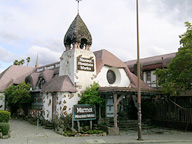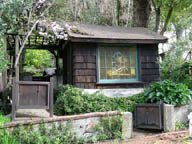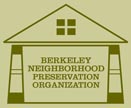“It makes no sense for us to recycle newsprint and bottles and aluminum cans while we’re throwing away buildings and sometimes even entire neighborhoods.”
Richard Moe, President, National Trust for Historic Preservation
“Nearly half of the greenhouse gases we Americans send into the atmosphere comes from our buildings.”
Richard Moe
“We cannot build our way out of this global warming crisis. We have to conserve our way out. This means we have to make better, wiser use of what we’ve already built.”
Richard Moe
“Any new building represents a new impact on the environment. The bottom line is that the greenest building is one that already exists.”
Richard Moe
“Historic preservation has always been the greenest of the building arts. It’s all about sustainability.”
Richard Moe
“Preservation is the ultimate recycling.”
Richard Moe
|
Measure LL was defeated
in the 4 November 2008 election.
Our thanks to all the Berkeleyans who voted NO on LL.
Please help us retire our campaign debt!
_________________
Preservation is Green
It saves the environment, neighborhoods, affordable housing, and community resources.
And that’s why we need to keep our strong Landmarks Preservation Ordinance. Measure LL would repeal our strong LPO and replace it with a developer-driven ordinance that would weaken the protections we’ve had for 34 years.
Vote NO on Measure LL . Don’t let speculators and politicians steal your power to decide what happens to your own neighborhood. Don’t let them steer the City away from its commitment to a green future.
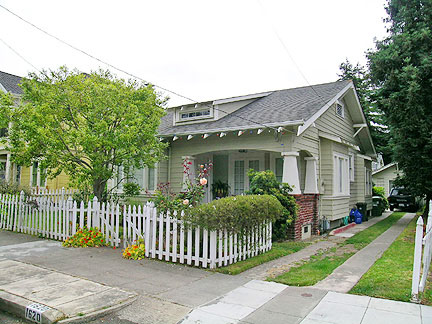
How does voting NO on Measure LL help to fight Global Warming?
Preservation is sustainability, but Measure LL would facilitate demolitions of historic buildings to make way for new construction. According to the Environmental Protection Agency, 48% of the Greenhouse Gases produced in the U.S. come from the demolition, construction, and operation of buildings. That’s more than all the cars, trucks, and buses on our roads, combined with all the airplanes we fly and the trains we run. Therefore, our most effective weapons against Greenhouse Gases are the preservation and retrofitting of older, historic buildings.
Unnecessary construction fills our landfills with tons of demolition debris, wastes our irreplaceable resources, releases pollutants into the air, and spends energy to construct buildings that will soon become obsolete. This means that every new building has an embodied energy cost, and that cost may never be recouped—even for the most energy efficient buildings made with recycled materials—because newer buildings are not designed to last long enough to recoup the energy it takes to build them. But buildings built before 1920 are more energy efficient than those built anytime before 2000, and unlike 21st-century buildings, they are designed to last.
How does voting NO on Measure LL save our neighborhoods?
Measure LL would nullify the protections granted to the public through our Landmarks Preservation Ordinance by substantially restricting the way in which ordinary citizens participate in decisions about their own neighborhoods. Measure LL significantly shortens the timelines for public participation in landmarking decisions. It expressly forbids an appeal when a building isn’t landmarked, but allows an appeal when a building is landmarked. This favors a development agenda over neighborhood concerns. When community participation is weakened and even prohibited, developers will have their way with our neighborhoods. Homes and small apartment buildings will be demolished to make way for profitable complexes. Communities will be destroyed to make room for the highest bidder’s projects. Our Landmarks Preservation Ordinance would prevent this by continuing to give residents a voice in the future of their own neighborhoods.
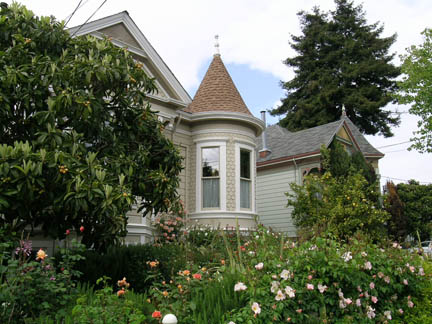
How does voting NO on Measure LL save affordable housing?
Berkeley’s affordable housing is located almost exclusively in older neighborhoods with their historic homes. They’ll be the first to fall under the wrecker’s ball if Measure LL were to passe. The complexes that take their place will have units with market-rate rents. Berkeley will lose its diversity and culture, if only those who can afford expensive dwellings are able to live here.
How does voting NO on Measure LL save community resources like Berkeley Iceland?
Our current Landmarks Preservation Ordinance, which Measure LL would nullify, helped community members to save Berkeley Iceland for future generations, because it gave them the time necessary to research Iceland’s history and present a compelling case to save it. If Measure LL were to pass, public resources on land ripe for development would be attractive targets for speculators. Measure LL would allow a developer to get a demolition permit before the public even knows what’s happening. By then, it could be too late to protest, because Measure LL shortens the timeline for the public to be heard.

What can you do to stop Measure LL from going into effect?
Your contributions of time and money are vital. The few who stand to profit greatly from the loopholes in Measure LL will contribute tens of thousands of dollars to pass it. We can only stop them with broad-based community support. Please donate your time and funds. Then vote NO on Measure LL, and tell your friends.
Read more
Richard Moe’s speech: Historic Preservation’s Essential Role in Fighting Climate Change [audio]
First Church of Christ, Scientist, 27 March 2008
Jon Carroll on preservation
San Francisco Chronicle, 8 April 2008
Building Reuse Is Green, Says Leading Architect
Berkeley Daily Planet, 11 March 2008
BAHA on Measure LL
Summer 2008 Newsletter
Green Party on LL [from Green Voter Guide]
Berkeley Daily Planet on LL [from Worry Global, Vote Local]
2 October 2008
SF Bay Guardian on LL [from East Bay Endorsements 2008]
8 October 2008
LL is for LLies
Judith Epstein, Berkeley Daily Planet, 16 October 2008
All photos copyright © 2008 Daniella Thompson
|
“Many historic buildings have thick, solid walls, resulting in greater thermal mass and reducing the amount of energy needed for heating and cooling.”
Richard Moe
“Up to now, our approach to life on this planet has been based on the assumption that ‘there’s plenty more where that came from.’ With our environment in crisis, we have to face the fact that there may not be ‘plenty more’ of anything—except trouble.”
Richard Moe
|


